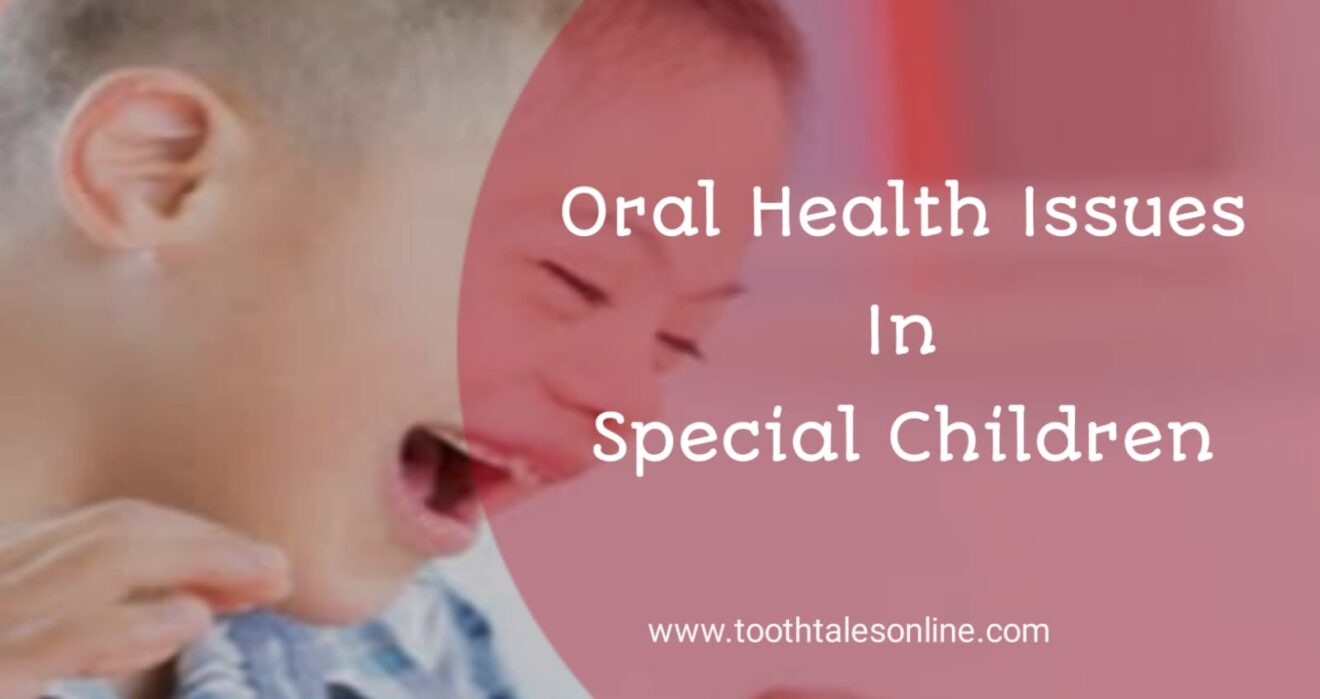Introduction:
Children with functional needs, often referred to as special children, require unique attention and care to ensure their overall well-being. One crucial aspect of their health that often goes unnoticed is oral health. This article delves into the specific oral health issues faced by special children and provides practical insights on how caregivers and healthcare professionals can navigate this terrain with sensitivity and effectiveness.
Understanding Special Children and Their Unique Needs:
Special children encompass a diverse group with a range of conditions such as autism spectrum disorders, Down syndrome, cerebral palsy, and intellectual disabilities. Each condition presents unique challenges, making it imperative to recognize and cater to individual needs.
Oral Health Challenges:
1.Sensory Sensitivities:
Many special children experience heightened sensory sensitivities, making oral care routines challenging. The feel of a toothbrush or the taste of toothpaste may be overwhelming, leading to resistance and avoidance.
2.Communication Barriers:
Some special children face communication challenges, making it difficult for them to express discomfort or pain related to oral health issues. This can result in delayed diagnosis and treatment.
3.Medication Side Effects:
Certain medications prescribed to special children may have side effects that impact oral health. Dry mouth, increased sugar cravings, or changes in saliva consistency are common issues that can contribute to dental problems.
4.Difficulty in Maintaining Personal Hygiene:
Motor skill limitations can affect a child’s ability to brush and floss independently. Caregivers often play a crucial role in assisting with oral hygiene routines, necessitating education on proper techniques.
Addressing Oral Health Concerns:
There are some oral health concerns are given below,
1.Adapted Oral Care Tools:
Utilizing adapted oral care tools, such as soft-bristled brushes, silicone brushes, or finger brushes, can help minimize sensory sensitivities. Experimenting with different textures of toothpaste and introducing them gradually can also be beneficial.
2.Establishing Routine:
Creating a predictable oral care routine can be comforting for special children. Consistency in timing and sequence helps in reducing anxiety and resistance. Visual schedules or social stories can be effective tools in establishing and reinforcing routines.
3.Regular Dental Check-ups:
Early intervention is crucial in addressing oral health issues. Regular dental check-ups, ideally starting at an early age, allow for preventive measures and timely treatment. Dental professionals experienced in treating special children can provide tailored care.
4.Communication Strategies:
Collaborating with speech therapists and utilizing alternative communication methods, such as visual cues or sign language, can enhance communication regarding oral health. This facilitates early identification of discomfort or pain.
5.Nutrition Counseling:
Given the potential impact of medication side effects and dietary habits on oral health, nutrition counseling plays a vital role. Recommending low-sugar alternatives and encouraging a balanced diet contributes to overall oral health.
Education and Support:
Here are some steps to provide caring support,
1.Caregiver Training:
Empowering caregivers with proper training on oral care techniques and awareness of potential challenges is essential. Workshops and educational materials can enhance their understanding and confidence in managing oral health.
2.Community Support Groups:
Connecting caregivers with support groups and communities that share similar experiences fosters a sense of understanding and solidarity. Exchanging tips and strategies within these groups can be invaluable.
3.Professional Collaboration:
Promoting collaboration between healthcare professionals, including dentists, pediatricians, and therapists, ensures a holistic approach to the child’s well-being. Shared insights and coordinated efforts contribute to comprehensive care.
Conclusion:
Prioritizing the oral health of special children requires a combination of understanding their unique challenges, implementing tailored strategies, and fostering a supportive environment. By addressing sensory sensitivities, communication barriers, and other specific needs, caregivers and healthcare professionals can play a pivotal role in nurturing the smiles of special children, contributing to their overall health and quality of life.






















Add Comment